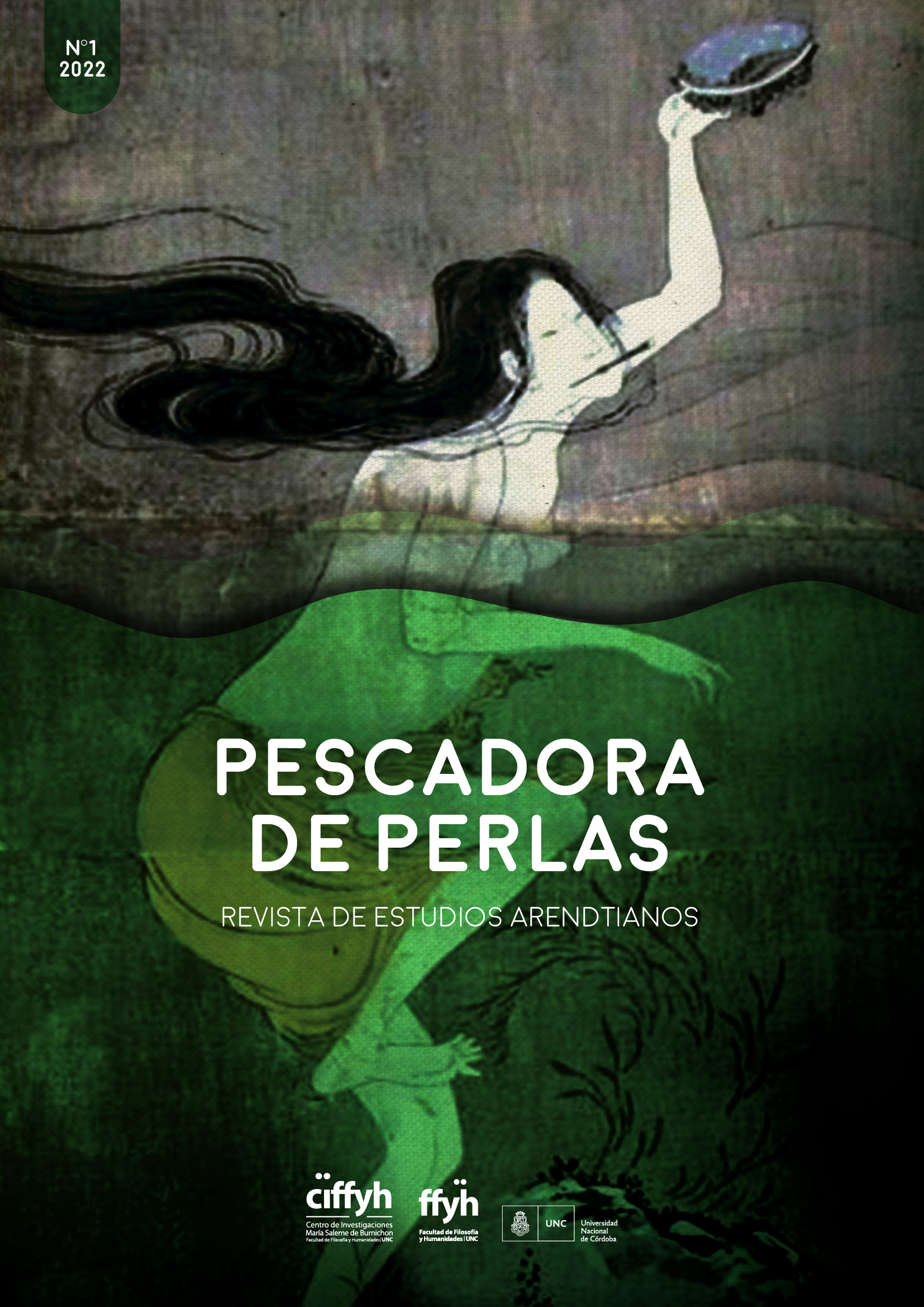The Gulag within the Totalitarian Horizon
Cross Exercise between Solzhenitsyn's Testimony and Arendt's Interpretation
Keywords:
political philosophy, concentration camps, Gulag, totalitarianismAbstract
This article analyzes one of the most controversial issues of The Origins of Totalitarianism, namely: the justification for the inclusion of Stalinism under the category of totalitarianism. This is a contentious issue since, although Arendt's book presents a long study of the antecedents of anti-Semitism and Nazi racism, there is no equivalent with respect to Stalinism. The key to analyzing this question is to focus on the implementation of the concentration camps, which are the fundamental totalitarian institutions. And for this, the testimony of Alexander Solzhenitsyn, author of Archipiélago Gulag and A day in the life of Iván Denísovich, is very important. The article's hypothesis consists in sustaining that the arendtian analysis that presents Stalinism as a form of totalitarianism is not justified by its study of the antecedents that allowed its crystallization, but by the centrality that the concentration camps acquired in its system. What we propose is an exercise in crossover between the works of Solzhenitsyn and the analysis presented by Arendt in The Origins of Totalitarianism. By showing how these categories are linked in Solzhenitsyn's work, we will be able to assess to what extent the inclusion of Stalinism as a form of totalitarianism is substantiated.
References
Arendt, H. (1998). The human condition. The University of Chicago Press.
Arendt, H. (2007). Karl Marx y la tradición del pensamiento político occidental. Ediciones Encuentro.
Arendt, H. (2015). Los orígenes del totalitarismo. Alianza Editorial.
Canovan, M. (2002). Hannah Arendt. A Reinterpretation of her Political Thought, Cambridge, Press Syndicate of the University of Cambridge.
Canovan, M. (1998). Introduction. En: H. Arendt, The human condition (pp. viii-xx). The University of Chicago Press.
Lefort, C. (1980). Un hombre que sobra. Reflexiones sobre El Archipiélago Gulag. Tusquets Editores.
Rousset, D. (2018). El universo concentracionario. Anthropos Editorial.
Soljenitsin, A. (1983). Un día en la vida de Iván Denísovich. Hyspamérica Ediciones.
Soljenitsin, A. (2016). Archipiélago Gulag. Editorial digital: Titivillus. Recuperado de: https://lectulandia.me/
Traverso, E. (2001a). La historia desgarrada. Ensayo sobre Auschwitz y los intelectuales, trad. de David Chiner, Barcelona, Herder.
Traverso, E. (2001b). El totalitarismo. Historia de un debate, trad. de Maximiliano Gurian, Buenos Aires, Eudeba.
Villa, D. R. (1999). Politics, Philosophy, Terror. Essays on the Thought of Hannah Arendt, New Jersey, Princeton University Press.
Downloads
Published
Issue
Section
License
Copyright (c) 2022 Germán Ramos

This work is licensed under a Creative Commons Attribution-NonCommercial-ShareAlike 4.0 International License.
Consultar los Avisos de derecho de autor. Aquellos autores/as que tengan publicaciones con esta revista, aceptan los términos siguientes:
- Los/as autores/as conservarán sus derechos de autor sobre el texto, y garantizarán a la revista el derecho de primera publicación, el cual estará simultáneamente sujeto a la Licencia de reconocimiento de Creative Commons: Atribución – No Comercial – Compartir Igual (by-nc-sa); no se permite un uso comercial de la obra original ni de las posibles obras derivadas, la distribución de las cuales se debe hacer con una licencia igual a la que regula la obra original.
- Después de la publicación, los trabajos podrán ser reproducidos por los autores en otros medios siempre que no se omita la indicación de la publicación original en esta revista. En este sentido, los autores/as podrán adoptar otros acuerdos de licencia no exclusiva de distribución de la versión de la obra publicada (p. ej.: al depositarla en un archivo institucional o publicarla en un volumen monográfico) siempre que se indique la publicación inicial en Pescadora de Perlas.
- La cesión de derechos de primera publicación de los/as autores otorga a Pescadora de Perlas autorización para que el trabajo sea colocado en el repositorio institucional de la Universidad Nacional de Córdoba y difundido a través de las bases de datos.



